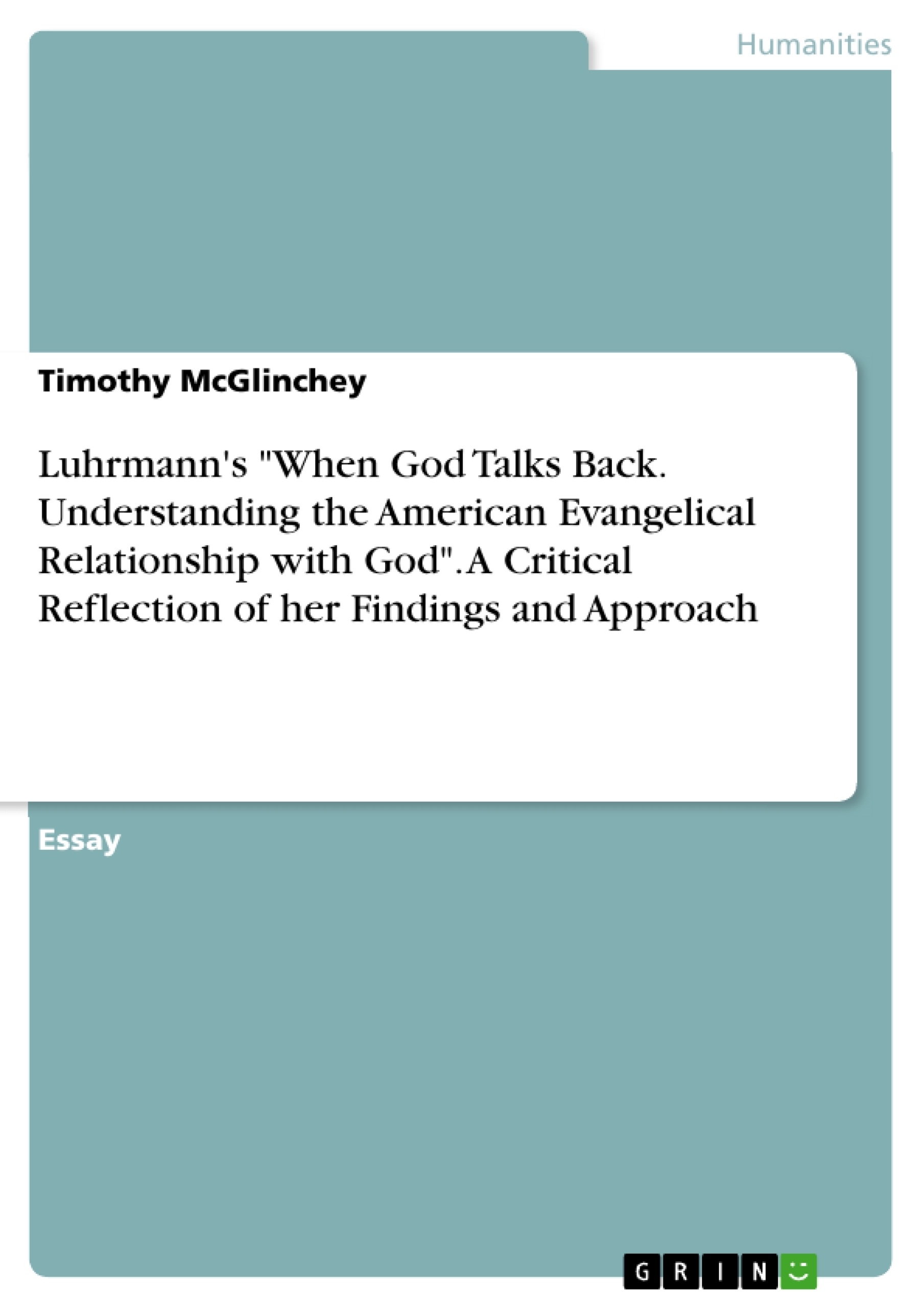In this essay I will seek to summarise and critically engage with the theories Luhrmann developed, the findings she made, and importantly, the approaches she used in the formation of her book "When God Talks Back". In doing so, I hope to shed more light onto the field of the anthropology of religion by exploring the broader applications of her work.
I intend to introduce this essay in the same way Tanya Luhrmann (2012) introduces her book; with perhaps some of the most intriguing and pertinent questions that challenge both the modern day understanding of religion, and indeed, the anthropologists who study it. How are rational, sensible people able to sustain belief in an endlessly powerful, yet completely invisible God, in an environment of overwhelming scepticism? And, how does this God become real for these people? Luhrmann sought to answer these questions through long-term ethnographic fieldwork amongst evangelical Christians, more specifically, congregants of the Vineyard churches across America.
Inhaltsverzeichnis (Table of Contents)
- Introduction
- The Participatory Theory of Mind
- Manifestations of the Participatory Theory of Mind
- Internal Processes
- External Events
- Sensory Overrides
- Critical Engagement with Luhrmann’s Theory
Zielsetzung und Themenschwerpunkte (Objectives and Key Themes)
This essay aims to summarize and critically analyze Tanya Luhrmann's book, "When God Talks Back," which explores the experiences of evangelical Christians in the Vineyard churches across America. The essay focuses on Luhrmann's "participatory theory of mind," which she argues explains how these individuals come to experience God in a real and personal way.
- The "participatory theory of mind" and its role in religious experience
- The impact of cultural practices on psychological dynamics related to religious adherence
- The manifestation of the "participatory theory of mind" in subjective interpretations of internal processes, external events, and sensory overrides
- The limitations of a cognitive approach to understanding religious experience
- The need to consider the experiences of non-believers in developing a comprehensive understanding of religious phenomena
Zusammenfassung der Kapitel (Chapter Summaries)
The essay begins by introducing Luhrmann's central argument about the "participatory theory of mind," a cognitive mechanism that allows individuals to perceive and interpret the world in a way that incorporates the presence of God. The essay then explores different manifestations of this theory, using examples from Luhrmann's fieldwork to illustrate how individuals experience God through internal processes, external events, and sensory overrides. The essay concludes by critically examining the strengths and limitations of Luhrmann's cognitive approach, arguing that while it offers a valuable explanation for the experiences of believers, it may not fully account for the experiences of non-believers.
Schlüsselwörter (Keywords)
The key themes and concepts explored in this essay include religious experience, the "participatory theory of mind," cognitive anthropology, evangelical Christianity, Vineyard churches, cultural practices, psychological dynamics, subjective interpretation, and the limitations of a cognitive approach.
Frequently Asked Questions
What is Tanya Luhrmann's "participatory theory of mind"?
It is a cognitive theory explaining how evangelical Christians train their minds to experience God as a real, interactive presence through specific cultural and psychological practices.
How do Vineyard church members experience God talking back?
They interpret internal thoughts, external coincidences, and occasionally sensory overrides (like hearing a voice) as direct communication from God, facilitated by prayer techniques.
What are "sensory overrides" in religious contexts?
Sensory overrides are brief, non-pathological hallucinations—such as hearing a voice or feeling a touch—that believers interpret as a supernatural encounter.
What is a major criticism of Luhrmann's approach?
Critics argue that her cognitive focus might overlook the experiences of non-believers or fail to account for the broader social and political dimensions of religious adherence.
Can rational people sustain belief in an invisible God?
Luhrmann argues that through "spiritual disciplines" and a specific theory of mind, even rational people can make God feel real and present in their daily lives despite modern skepticism.
- Citation du texte
- Timothy McGlinchey (Auteur), 2015, Luhrmann's "When God Talks Back. Understanding the American Evangelical Relationship with God". A Critical Reflection of her Findings and Approach, Munich, GRIN Verlag, https://www.grin.com/document/322774



